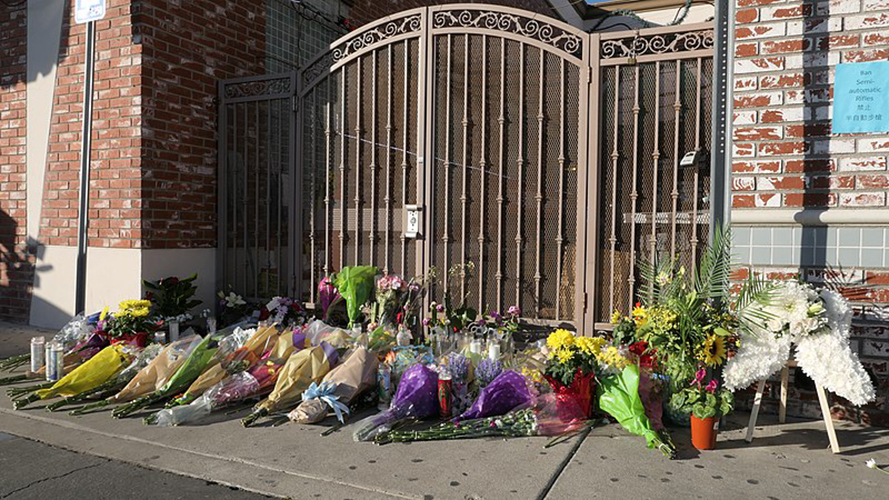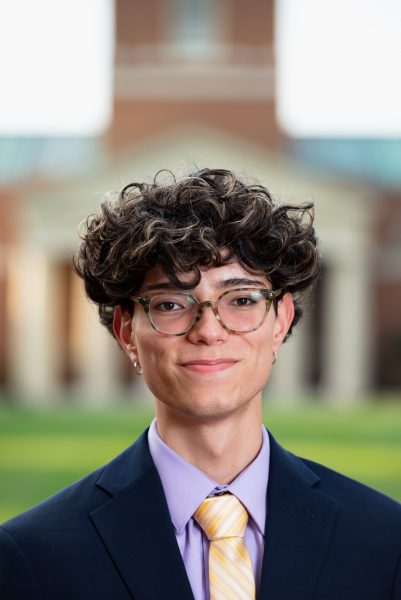Asian students reckon with shootings during the Lunar New Year
International and Asian American students grapple with mass violence against Asian Americans in California during a time of festivities
Flowers sit outside of Star Ballroom Dance Studio in Monterey Park, Calif.
February 1, 2023
On Jan. 23, seven people were shot and killed and one was critically injured in Half Moon Bay, Calif. Just two days before, on Jan. 21, 11 people were killed and nine were critically injured in a shooting at Star Ballroom Dance Studio in Monterey Park, Calif. All but one of the victims were Asian Americans.
The timing of the attacks coincided with celebration of the Lunar New Year, which began Jan. 22. Celebrations typically continue for two weeks and are typically joyful, this year, however, they are stained by the bloodshed.
“Initially I was desensitized,” junior Annie Phan said. “At some point, the hundreds of articles in the papers with similar tragic headlines began to feel normal.”
Violence against Asian communities has increased with the COVID-19 pandemic, according to PBS. And though definitions for mass shootings vary, there have been almost 50 of them in January alone, according to a New York Times report — which leaves Asian American students to grapple with both the grief of losing members of their communities and the communal joy that often surrounds this time of year.
The Asian Student Interest Association (ASIA) plans to host an event Feb. 11 to celebrate the Lunar New Year anew.
“[The event] will give everyone a space to see what we have to offer and create connections with the wider community,” Phan said. “And to make sure that the traditions that we’ve upheld for thousands of years remain strong. Everyone who has lived and everyone who has died will be honored through our celebrations and continuations of their legacies.”
In the meantime, Phan, who currently serves as president of ASIA came to realize that she was not desensitized to the shootings — she was simply coping.
“I realized that I was not, in fact, desensitized because the next thing I knew, I was lying on my carpet floor for hours just sad and heartbroken,” Phan said. “The thing that slapped me in the face the most was remembering that on Sunday, 11 people had plans — festivals to attend, red envelopes to receive, their favorite cousin to catch up with. They had bánh tét to steam and firecrackers to pop. They made promises of tomorrow to their friends and family, only to have that stripped away from them and [their entire] community.”
The Monterey Park shooting was horrifying initially. And it became even more personal when my aunt told me that my grandparents used to frequent Monterey Park — so I have had to distance myself from the news to protect my mental health.
— Alyssa Cheng ('26)
The Monterey Park shooting was especially unsettling because the city has a current majority Asian American population, according to a New York Times report.
“The Monterey Park shooting was horrifying initially,” freshman Alyssa Cheng said. “And it became even more personal when my aunt told me that my grandparents used to frequent Monterey Park — so I have had to distance myself from the news to protect my mental health.”
The Lunar New Year is a special time of the year for many Asian American communities, making the recent shootings that much more difficult to process.
“The Lunar New Year is a time to spend with loved ones, to celebrate new beginnings and to bring in the new year with good luck,” junior and Vice President of ASIA Katie Zheng said.
Because of the recent violence, however, some students changed their plans.
“I [celebrated] Lunar New Year with friends indoors for my safety and others’ safety,” said freshman Owen Jun, an international student from South Korea. “The news about the Monterey Park shooting made me [feel] like I shouldn’t be in any gatherings held outside during holidays.”
It is almost impossible not to feel a sense of disdain at the thought of celebrating amidst such tragic events, but students like Phan — who is planning to celebrate “bigger and better” — are not letting anything dampen their joy.
For students seeking support, Wake Forest’s student organizations such as ASIA, the Hindu Student Association and the Asian American Identity Group offer resources to connect students.
“We hope that our events and also the events of many other groups like the Intercultural Center, Asian American Identity Group and more create this community during Lunar New Year,” Zheng said.























